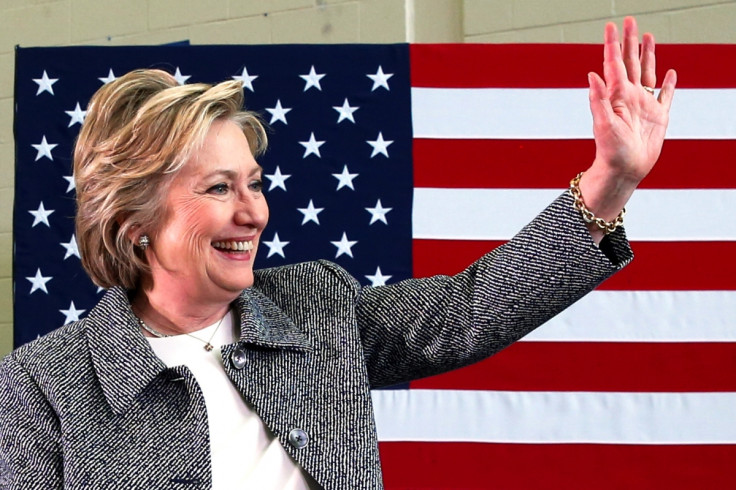Everything you need to know about the 26 April primaries in Pennsylvania and Rhode Island

The remaining five presidential candidates will face off in five states on 26 April, which frontrunners Hillary Clinton and Donald Trump hope will seal their nominations ahead of the conventions in July. The primaries on 26 April will take place in Connecticut, Delaware, Maryland, Pennsylvania and Rhode Island.
In total, 118 Republican delegates and 384 Democrat delegates will be up for grabs on 26 April. Clinton leads Bernie Sanders with 1,428 pledge delegates to his 1,153. Her lead increases when superdelegates are counted, 1,941 to 1,191. Democrat candidates need 2,383 delegates to win the nomination. On the GOP side, Trump leads with 845 delegates, followed by Ted Cruz with 559 and John Kasich with 148. Republican candidates need 1,237 delegates for the nomination.
The first three primaries are discussed in Part 1 of our primary preview, while we break down everything that you'll need to know for the races in Pennsylvania and Rhode Island below.
Pennsylvania
Pennsylvania will be the biggest win of the night for the Democrat candidates with 189 delegates on offer. Meanwhile, there are only 17 delegates available for the GOP's candidates. Polling locations will open at 7am EDT/12pm BST and will close at 8pm EDT. Voters can find their polling place by visiting the Pennsylvania Polling Place Locator.
Recent polls show Clinton is ahead of Sanders by varying margins. While the recent CBS News/YouGov poll puts Clinton ahead by just eight points, a poll by Franklin & Marshall just a few days prior has her up by as much as 27 points. Like in other states, Pennsylvania awards its delegates to Democrat candidates proportionally.
Trump has a firm lead in the Keystone State, with all recent polls showing him in the lead by double digits. A CBS News/YouGov poll has him ahead by 23 points at 49%. He is followed by Cruz with 26% and Kasich with 22%. Republican delegates are awarded in a slightly different way than Democrat delegates in the state. There is a winner take all system statewide, but a loophole primary at the district level.
Rhode Island
The primaries in the small state of Rhode Island will offer 24 delegates on the Democrat side and 19 delegates on the GOP side. Polling stations around the state will open as early as 7am EDT/12pm BST and as late as 12pm EDT. All polls will close at 8pm EDT.
Voting advocates have expressed concern after Rhode Island decided to consolidate precinct locations, going from 419 polling places to 144. John Marion, executive director of Common Cause Rhode Island, told ThinkProgress that he is concerned that higher voter interest and the state's 2011 voter ID law could cause issues.
Although the consolidation was announced in January, there are renewed interests following how disorganised voting was in Arizona earlier in the primary season. Marion also noted that because the state's voter ID law has not been in the news as of late, voters could be unaware that they need to bring photo identification to cast their ballots.
On the Democrats side, polls have Clinton ahead by just nine points, 43% to 34% in the latest Brown University poll. Despite the possibility of losing the state, Sanders is likely to take at least some of the state's delegates as they are awarded proportionally.
On the Republican side, polls show Trump leading by double digits, with the latest poll by Brown University showing him ahead by 13 points at 38%. Delegates will be awarded proportionally, which could prove beneficial to Kasich, who follows Trump in the polls with 25%. Like the last primary in New York, Cruz could see himself shut out in Rhode Island.
Democrats and Republicans will face off again on 3 May in Indiana and 10 May in West Virginia. Republicans will also head to Nebraska on 10 May.
© Copyright IBTimes 2025. All rights reserved.






















